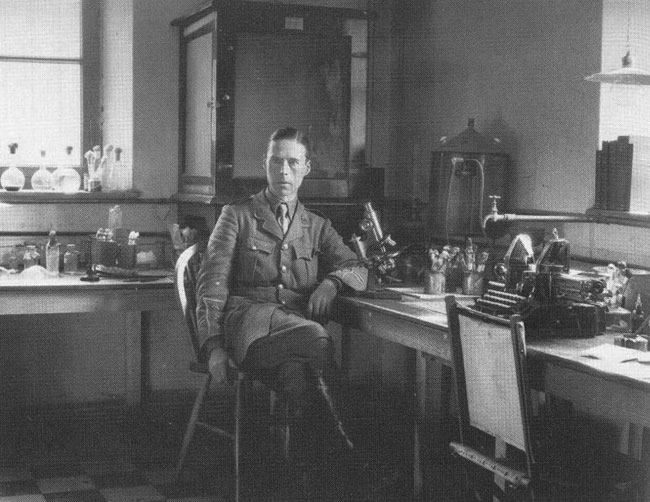Discoverer of bacteriophages: Who is Frederick Twort?
In 1915, he published his most important work, a book containing substances he called 'Bacteriolytics' (literally killing bacteria).

British bacteriologist Frederick Twort (1877-1950) was one of the discoverers of bacteriophages, viruses that use bacteria as hosts. He made useful discoveries in the field of bacterial production in suitable environments, in the fight against infectious diseases, on mutations, and, of course, on viruses and bacteriophages. Unfortunately, many of his inventions and publications were not taken into consideration in his time.
Frederick William Twort (22 October 1877 – 20 March 1950) was an English bacteriologist and was the original discoverer in 1915 of bacteriophages (viruses that infect bacteria). He studied medicine at St Thomas's Hospital, London, was superintendent of the Brown Institute for Animals (a pathology research centre), and was a professor of bacteriology at the University of London. He researched into Johne's disease, a chronic intestinal infection of cattle, and also discovered that vitamin K is needed by growing leprosy bacteria.
Mutant Species
Frederick Twort was an Englishman who graduated from medical school in 1900 and spent most of his career at the Brown Institute of Animal Health, an institute of pathology. In the early years of his work, Twort mostly classified microbes according to the sugars they used. He discovered that it wasn't as black and white as it seemed. Bacteria can adapt to the culture environment and suddenly digest some sugars that they could not digest before. He published articles about mutation and adaptation in microbiology, but this was ignored for a long time.
Main Elements
He excelled at gaining insight into the connections between specific microbes and their relationship with food. The biggest problem in his time was leprosy caused by Mycobacterium species. However, these microbes could not be grown in culture media. Twort discovered that if he mixed the dead cells of another bacterium with the culture medium, these microbes could be grown successfully in the laboratory. It was later discovered that vitamin K was deficient in the culture medium. The value of these studies was realized years later.
'Bacteriolytic' Bubbles
Twort would sometimes attempt to grow viruses in artificial food sources. For example, he worked to produce a better vaccine against the smallpox virus. In 1915, he published his most important work, a book containing substances he called 'Bacteriolytics' (literally killing bacteria). Twort first thought that enzymes were what killed bacteria, but later it was announced that it was bacteriophage. Two years later, independently of Twort, French-Canadian microbiologist Félix d'Hérelle published studies on bacteriophages. Twort and d'Hérelle are often cited together as the discoverers of bacteriophages.
